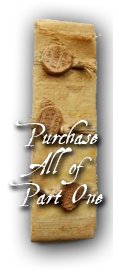Scroll 8
Something Stinks
Global warming is changing the timing of a myriad of cyclical processes that provide food for wildlife, driving many birds and insects to move where they range.
The impact of many of these changes could be catastrophic.
—The Seventh Korus of the Emerald Tree
After catching a double-decker around Parliament Square, Max rode the legendary double-decker down Victoria Street and onto busy Knightsbridge. Knowing the bus wouldn’t cooperate any further, he leapt off at Brompton Road and ran the rest of the way down Cromwell Grounds until he got to the other place he called home: London’s Natural History Museum. With five minutes to spare—the museum closed at 5:50—he bolted through the entrance. (Admission was always free, so there was no need to stop and pay.)
At that hour the central hall was empty, so maintaining his speed was easy. Max blew past the hall’s towering Diplodocus skeleton, winking at the marble bust of Charles Darwin as he raced for the second floor, and tapping the cross section of the giant Sequoia at the top of the stairs for luck like he always did.
Winded, he approached the familiar double doors marked STAFF ONLY, reminding himself to slow down in order to avoid raising su suspicion. Like that was going to happen.
Flying through the doors as if they weren’t there, he spied the solitary door at the end of the hall with the name Dr. Alistair Caulfield stenciled on its glass and burst into the small office beyond without knocking, or slowing.
“And to what do we owe this pleasure, Master Webster?” asked the old man tucked into a cramped corner of the windowless room.
“How’d you know it was me?” Max huffed.
Without looking up from his microscope, the entomologist smiled. “Lord Darwin rang and said you were on your way up.”
“Cheeky. And here I thought you only studied bugs.”
“Arthropods, Max. We study arthropods.”
Seemingly satisfied with his retort, Dr. Caulfield sat up behind his bench, flattening his tattered cardigan and straightening his tiny academic tie, which rested on the small potbelly in his lap.
The man was all fidgets and Max loved him more than anyone (except his mum, of course). Still, he couldn’t help but wonder how many moths had taken up lodging in that wiry mass of a beard, or just how long he’d been pulling at the knot around his neck. Given the ratty evidence, Max imagined the doctor to be somewhere between two and three hundred years old. The funny thing was that no one at the museum seemed to disagree.
“Okay. Nothing’s exactly wrong, but something’s not entirely right, either.” Max’s reply was purposely obscure. He didn’t want to overstate his knowledge to one who probably knew better.
“How astute, your fuzzy logic. Does this apply to any particular subject, or to the universe in general?” Though his eyes remained glued to his microscope, the professor raised an entertained eyebrow. “We do have a job to do, Max. What’s on your mind?”
Max didn’t hear him. As always, he’d become instantly lost in his mentor’s world.
The walls of the humble office were lined with framed specimens—bugs, hundreds of them—each carefully tagged with its full scientific classification and history. Max’s eyes lighted on a pear-shaped black beetle with a metallic violet sheen. Beneath it were the words:
Carabus violaceus
PHYLUM: Arthropoda
CLASS: Insecta
SUBCLASS: Pterygota
ORDER: Coleoptera
SUBORDER: Adephag
FAMILY: Carabidae.
Awwww…poetry. Sheer poetry. Here Max could study insects he would probably never come across—wild, exotic insects that lived deep within the wettest rain forests and the hottest deserts.
Insects almost as long as his forearm, like the Giant Walking Stick found in Li Fang’s Singapore. The bug reminded him of a Mexican “Day of the Dead” marionette, complete with limbs seemingly made of twigs. Or the Morgan’s Sphinx Moth that Darwin had discovered in Madagascar. It had a tube-shaped snout that unrolled twelve to fourteen inches, enabling it to reach the bottom of even the deepest African orchids. That one would do well down at the pub.
“Max?” Dr. Caulfield repeated.
Max blinked himself back into the moment.
“Yeah. I found this.” His hands immediately went to his hoodie. Removing the Coca-Cola can, Max unfolded its tab and gently shook free the shield bug inside.
Dr. Caulfield made room on his desk, pushing aside his microscope, books, and stacks of papers. Max smiled. The Doctor always made room for him.
Holding the wiggling bug between the tips of his tweezers, the entomologist donned his spectacles and leaned in.
Max held his breath. “It ain’t from here, innit?” he asked. “Similar to the Palomena prasina but different, yeah?”
“Is. It.” Caulfield corrected. His bushy eyebrows frowned like wooly caterpillars butting heads. “Remember, accuracy in all things, Max. We need to be just as good with language as we are with knowledge. Otherwise, how can we accurately pass science on?”
“It’s not from here,” Max repeated. Then, pointedly: “Is. It?”
Caulfield cast a caustic eye, causing Max to swallow hard. Besides being a smart arse, what if he’d made a mistake? What if he’d rushed to judgment, barging in on his mentor for some common bug only he couldn’t identify? “Look,” he said, trying to bolster his case. “It doesn’t have the same brown markings.”
Max shuffled his feet while Caulfield continued to review the tiny, six-legged suspect. It seemed to take forever—it often did—but the entomologist’s verdict finally came. Caulfield propped his elbow on the table and rested his chin in his hand. He shook his head and sighed heavily at the burden at the end of his tweezers.
“Very good, Max. Very good.” Caulfield wiped his glasses clean as he dropped the bug back in the can.
Max felt a glow of pride warm his face. That’s when Caulfield slid his glasses down his nose and looked him in the eye. “Until recently, London’s been too cold for Nezara viridula. But the combination of the urban heat-island effect and global warming make its survival here possible.”
“That’s what I was afraid of,” muttered Max.
“It will colonize,” Dr. Caulfield continued. “Soon it will begin attacking crops. First we’ll see it in our gardens, in our tomatoes, lettuce, in our spinach. Then, as its numbers grow, its effect will be more noticeable. Entire crops will fail.”
“So it’s not good,” Max clarified.
“We, make that I, stand corrected.” Dr. Caulfield shoved the soda can back toward Max. “It’s not good. Not good at all.”




